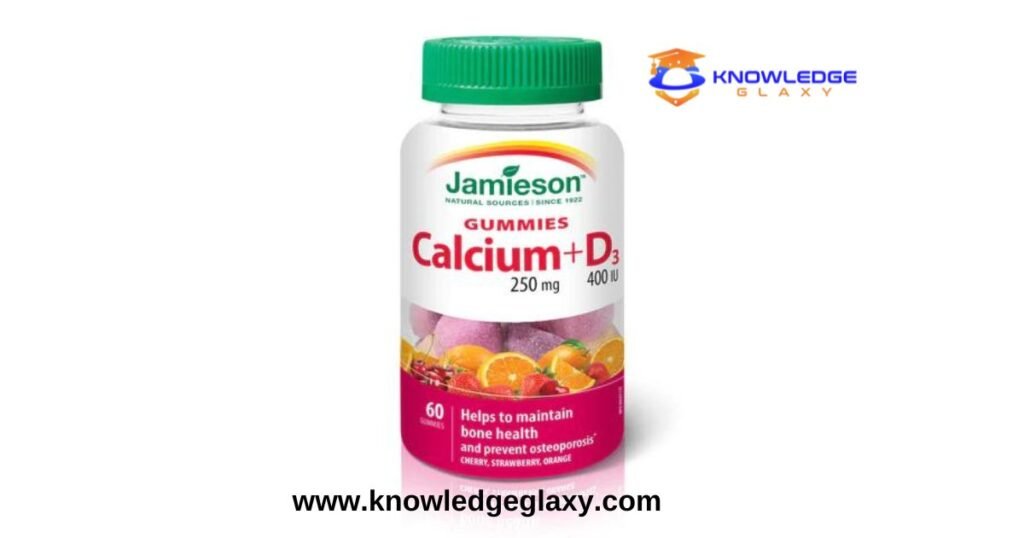Introduction:
Calcium, a vital mineral, is crucial in building and maintaining strong bones and teeth. It also supports muscle function, nerve transmission, and heart health. While most individuals can meet their calcium needs through a balanced diet, certain factors like dietary restrictions, health conditions, and age can necessitate calcium supplementation.
The Essential Guide to Calcium Supplements for Bone Health
Getting adequate calcium is vital for building healthy bones and avoiding debilitating osteoporosis. But when diet alone falls short of meeting optimal calcium levels at different life stages, quality calcium supplements can help bridge the shortfall.
Read More: Prodentim Reviews

This comprehensive guide covers why and how to supplement calcium through key life phases and navigates the array of available calcium supplement options to discover your best match. Let’s dive in to optimize your skeletal strength!
Why Our Bodies Need Calcium
Calcium rightfully earns starring roles on supplement labels because it constitutes considerable portions of bones and teeth. But the importance of this plentiful mineral expands deeply into bodily processes like:
Bone mineralization – 99% of our calcium gets stored in bones and teeth, serving as extracellular cement that fortifies their hardness.
Nerve firing – Calcium facilitates electrical impulses that relay messages within the nervous system for muscle contractions, pain perception, hormone secretion, and more.
Blood vessel expansion – Calcium signals smooth muscles around blood vessels when to relax or contract, controlling blood pressure.
Enzyme activation – Many enzymes kick into gear only when binding to calcium, especially those regulating blood clotting.
Cell messaging – Calcium ions cross cell membranes, activating signalling cascades managing cell proliferation, gene expression, fertilization and learning.
This broad scope of responsibilities explains why sufficient calcium intake day in and day out matters tremendously for your health and functionality.
How Much Calcium We Need Daily
Recommended daily calcium intakes to meet the body’s multifaceted needs differ by life stage as follows, according to leading health authorities:
Infants 0-6 months – 200mg per day
Infants 6-12 months – 260mg per day
Children 1-3 years – 700 mg per day
Children 4-8 years – 1,000mg per day
Children 9-13 years – 1,300mg per day
Teenagers 14-18 years – 1,300mg per day
Adults aged 19-50 – 1,000mg per day
Pregnant/nursing mothers – 1,000-1,300mg per day
Adults over 50 – 1,200mg per day
Based on extensive scientific evaluations, these recommended intakes represent optimal amounts for at least 97% of healthy individuals. Reaching them daily supports reaching your peak bone mass during developmental years and reducing bone loss as you age.
Now that you know specific calcium targets, let’s explore common obstacles to getting enough from food alone. Understanding where dietary gaps arise is critical for strategizing supplements.
Getting Enough Calcium from Diet Alone
Dairy products like milk and yogurt supply a readily absorbed 75% of calcium in most Western diets. When selecting correctly, the remaining 25% comes from plant sources or fortified foods.
But the rigours of modern life frequently thwart getting enough calcium-rich foods regularly:
Lactose intolerance – 75% of adults worldwide lack sufficient lactase enzymes splitting lactose sugars in dairy, forcing avoidance.
Allergies – Milk allergies also provoke unpleasant symptoms, causing avoidance even when willing to tolerate discomfort.
Limited options – Plant-centric eaters must carefully combine various beans, greens, nuts and seeds to meet needs given absorption challenges.
Disliking calcium foods – Many shun broccoli, kale, dairy and necessary replacements like tofu or fortified milk alternatives.
Medical obstacles – Certain conditions hamper absorption, like Crohn’s disease, celiac disease, gastric bypass procedures, etc.
Inconsistent eating – Busy, on-the-go lifestyles often need to pay more attention to calcium sources, missing key opportunities.
Without deliberate attention, securing reliable calcium intake through whole food selections alone daily proves extremely difficult for large segments of the population, increasing their dependence on calcium supplements later.
Who Needs Calcium Supplementation?
If dietary adjustments consistently fail to deliver adequate calcium daily long term, or medical hurdles hinder you from absorbing enough calcium through food, supplementation bridges the shortfall.
The following populations stand to benefit most from adding a calcium supplement when diet alone falls short:
Children – Developing bone density hinges on adequate calcium uniting with phosphorus and vitamin D. Childhood and teenage years are critical windows for building bones less susceptible to deterioration later.
Women – Rapid bone turnover during lactation and postmenopause makes sufficient calcium hard for many to sustain from diet alone.
Seniors 50+ – Advancing age slows calcium absorption by the intestines. But Needs rise simultaneously as the balance of bone-building to loss shifts towards loss.
Frequent dieters – Repeated attempts at weight loss often slash dairy intake. Over time, chronic deficiencies accumulate, compromising bone health.
Of course, anyone facing chronic obstacles securing their RDA of calcium daily can benefit from supplement insurance protecting skeletal integrity. Identifying your life stage risks empowers optimal solutions.

Signs You Could Benefit from More Calcium
Look for these possible indications inadequate calcium is compromising optimal health:
Osteoporosis diagnosis – Formal bone density scans (DEXA) detect the hallmark disease. Don’t wait for this outcome to up calcium sources!
Fractures/breaks – Fragile bone density shows itself through increased incidence of fractures – first subtle vertebral compression, then bones like wrists and hips as depletion progresses.
Muscle cramps or spasms -Calcium relays nerve signals for muscle movement; lack of calcium irritates nerves.
PMS mood swings – Estrogen rises premenstrual affect calcium blood levels, triggering neurotransmitter imbalances if already low.
Tooth decay – Weak calcium foundation unable to sufficiently remineralize enamel after consuming acidic foods or drinks.
Nail breakage – Like bones and teeth, calcium lends hardness to nails to resist chipping and peeling when solid stores fall short.
Be sure to optimize calcium intake before apparent osteoporosis develops. Be proactive in fueling strong, flexible bones with essential minerals!
Best Calcium Supplement
Determining the “best calcium supplement” depends on individual needs and preferences. Factors to consider include:
- Calcium Dosage: Recommended daily intake varies by age and health status. Adults typically require 1,000 mg daily, with higher amounts for women over 50 and men over 70 (1,200 mg).
- Calcium Form: Common forms include Calcium carbonate, Which is affordable, but absorption requires stomach acid.
- Calcium citrate: More expensive but better absorbed regardless of stomach acidity.
- Chelated calcium: Highly absorbable but pricier.
- Other Ingredients: Consider any added vitamins, minerals, or fillers that may interact with medications or have unwanted side effects.
Best Calcium Supplement for Women
Women, particularly postmenopausal women, have higher calcium requirements due to bone density loss. Look for formulations designed for women, often containing additional vitamins and minerals like vitamin D for enhanced absorption.
Vitamin D and Calcium Supplement
Vitamin D facilitates calcium absorption. Consider a combined vitamin D and calcium supplement for optimal bone health, mainly with limited sun exposure.
Best Calcium Supplement for Osteoporosis
If you have osteoporosis, consult your doctor for personalized recommendations. They may suggest specific calcium supplements based on your individual needs and other medications you’re taking.
Liquid Calcium Supplement
Liquid calcium supplements are easily absorbed and suitable for individuals with swallowing difficulties or digestive issues that hinder the absorption of traditional tablets.
Children’s Calcium Supplement
Children have specific calcium needs for growing bones and teeth. Opt for age-appropriate children’s calcium supplements in forms like chewable tablets or gummies that they’ll find appealing.
Best Calcium Supplement for Women Over 50
Women over 50 require increased calcium intake to combat bone loss associated with menopause. Look for supplements specifically formulated for older women, addressing additional health concerns they might face.
Calcium Supplement Pregnancy
Pregnant women have elevated calcium needs for fetal development. Consult your doctor to determine the appropriate calcium supplement dosage and form during pregnancy.
Calcium Supplement Benefits
Beyond bone health, calcium supplements offer several potential benefits:
- It may reduce the risk of certain cancers, especially colorectal cancer.
- It could aid in weight management by promoting satiety and fat burning.
- It might help control blood pressure in individuals with hypertension.
Citracal Calcium Supplement
Citracal is a famous brand offering various calcium supplement formulations. After consulting your healthcare professional, explore their products and choose one that aligns with your specific needs.
Important Considerations
- Consult your doctor before starting new supplements, especially if you have pre-existing health conditions or take medications.
- Do not exceed the recommended calcium intake, leading to kidney stones and other health problems.
- Be aware of potential side effects such as constipation, gas, and bloating, especially with higher doses.
- Look for reputable brands that adhere to quality standards and third-party testing.

Why Calcium Supplements Need Vitamin D
Trying to boost calcium through diet or pills alone helps to build better bones if vitamin D levels also sufficiently rise. Here’s why the “sunshine” vitamin proves pivotal:
Vitamin D improves absorption – The small intestine absorbs calcium best when activated by vitamin D to maximize uptake. D signals for more binding proteins deploying when available.
Vitamin D builds bone matrix - Osteoblasts can’t lay down rigid bone matrix without enough vitamin D to mineralize sections as calcium integrates.
Vitamin D prevents excess excretion - Inadequate vitamin D leads to excessive calcium loss through urine waste, trying to balance overload instead of storing it appropriately in bone.
Ideally, we all synthesize ample vitamin D through sunlight’s UVB rays interacting with skin cholesterol. But modern realities frequently interfere:
Sun avoidance – Concerns over skin cancer risk prompt staying covered and lathering on high SPF sunscreens, minimizing natural vitamin D building.
Limited daylight – Latitudes far from the equator don’t receive adequate intense sunshine for enough days annually at the right solar angles.
Pollution – Smog diffuses UVB rays, blocking skin absorption even in sunny climates.
Thus, pairing your calcium supplement with built-in or additional vitamin D ensures you can effectively utilize the calcium available for healthy skeletal preservation.
Finding the Best Calcium Supplement for Your Needs
With such variety on shelves, selecting your optimal calcium supplement deserves some strategic consideration, targeting unique needs and lifestyle factors:
Calcium Carbonate vs. Calcium Citrate
The two most common supplemental calcium forms include:
Calcium carbonate - This budget-friendly option combines calcium ions bonded with carbonate coming from rocks. It offers high elemental calcium concentrations of around 40%, requiring smaller doses to meet needs. However, absorption depends greatly on stomach acid levels to dissociate and dissolve ionic bonds.
Calcium citrate – Here, calcium binds with citric acid, giving citrus fruits tartness. Lesser elemental calcium concentrations mean slightly bigger doses. However, the citrate form avoids stomach acid reliance, and absorption drops less when taken without food. Many “senior” formulas now use citrate.
If regularly taking antacids or proton pump inhibitors hampering stomach acid production, calcium citrate makes the wiser choice. Those with iron deficiency anemia also utilize citrate better.
Cost-conscious consumers getting enough vitamin C and stomach acid can undoubtedly start with calcium carbonate formulas with strong reputations meeting purity testing standards.
Tablet vs. Capsules
Both compressed tablets and gel capsules effectively deliver standard calcium supplements, so form depends more on personal preference. But noteworthy contrasts exist:
Tablets – Usually cheaper, they can include binding agents and coatings affecting absorption for good or ill, depending on quality. Some prefer chewing tablets.
Capsules – Enclose loose powder securely separating from air exposure until swallowed. No compression aids are needed. Often pricier but versatile – work with various formulas.
If opting for tablets, inspect additives and coatings. Cellulose and magnesium stearate are generally safe flow agents at low levels. But cheaper forms add lots of unnecessary fillers. Those with allergies find capsules to avoid potential irritants.
Liquid Calcium Supplements
Liquid supplements streamline calcium dosing, mainly benefiting patients with:
- Swallowing difficulties
- Appetite reduction
- Absorption issues
- Pediatric picky eaters
Often containing ionic or “colloidal” minerals already broken down and suspended in liquid, assimilation begins immediately through membranes, unlike waiting for pills to dissolve.
Drawbacks revolve around higher costs and limited formulas available. Maintaining quality without preservatives also challenges some liquid brands. But convenience and rapid effects make liquid calcium supplements stellar choices for many purposes.
Vitamin D Levels to Seek
When assessing calcium supplements, adequate amounts of bundled vitamin D also deserve attention. Current intake guidelines for supplemental vitamin D daily include:
- Infants – 400 IU
- Children Under 13 – 600 IU
- Teens & Adults Under 70– 600-800 IU
- Seniors Over 70 – 800-1000 IU
So, compare combined amounts of vitamin D within multivitamins plus individual calcium pills. Underzipfile provides adequate synergistic support, activating calcium to strengthen bones fully.
Other Beneficial Pairings
Beyond vitamin D, specific mineral teammates amplify a calcium supplement’s bone-enriching effects:
Magnesium - Supports bone matrix flexibility and calcium blood level regulation
Phosphorus – Composes mineral crystals maturing bone together as hydroxyapatite.
Strontium – Mimics calcium’s incorporation while also stimulating osteoblast production
Silica – Directs calcium deposition, strengthening collagen foundation
Manganese – Activates enzymes constructing bone matrix proteins
High-quality bone formulas incorporate these essential cofactors working together for maximum expansion of mineral bone density.
Added Ingredients to Avoid
On the flip side, the cleanest calcium supplements leave out unnecessary or counterproductive compounds like:
Starch – Cheap bulking additives that hinder absorption
Oxalates – Antinutrient-blocking calcium utilization found in poor veggie-sourced or soy formulas
Lead – Toxic heavy metal accidentally concentrated from some rock sources
Aluminum – neurotoxic metal linked to brain diseases
Reputable brands test extensively for purity and potency, ensuring safety and efficacy. Scrutinize CoAs if available and Watch Group monitoring for, unfortunately, frequent label violations slipping through.
Best Calcium Supplement Ingredients Overall
Tracking down pure calcium supplement products that suit individual situations would be tricky enough. But consumer wariness has also increased after investigations uncovering metals, toxins, antibiotic traces and general formula inconsistencies somehow passing regulations.
Seeking out the cleanest, most effective calcium supplements boils down to inspecting these fundamental areas:
- Elemental Calcium Levels
Supplement facts labels distinguish between “elemental” calcium versus total calcium compounds. Elemental indicates how much movable calcium gets freed up to serve your body after digestion. This number makes or breaks meeting needs. Carbonate and citrate forms range from 30-40% elemental concentration.
- Vitamin D Intake Sufficiency
Levels reaching 600-1000 IUs daily ensure that supplied calcium gets properly utilized, building bones instead of excreted. Account for D consumed in other supplements when tallying totals.
- Formula Transparency
Clean supplements from trusted suppliers disclose exact non-proprietary sources of each mineral plus all additional ingredients with purposes explained rather than hiding behind “proprietary blends.”
- Certificate of Analysis Testing
Rigorous independent lab testing quantifies active ingredients while screening for contaminants and verifying quality and safety. Results should be easily accessible.
- Company Integrity
Responsible brands voluntarily follow Current Good Manufacturing Practices and agree to independent auditing, ensuring optimal sourcing, purity and potency, upholding consistently reliable label claims.
Prioritize elemental calcium forms properly pairing with vitamin D first, then layer on bonus bone-supporting minerals secondly for a synergistic 1-2 punch!
Best Calcium Supplements Ranked
With key characteristics distinguishing effective bone builder formulas clearer now, here’s a list of top calcium supplements by purpose:
Overall Essential – New Chapter Bone Strength Take Care
- Whole food plant sources + collagen protein foundation
- Well-absorbed forms with cofactors
- Sustainably sourced from start to finish
Budget Buy – NOW Foods Calcium & Magnesium
- High elemental Ca + D combined with magnesium
- No unnecessary additives
- The established quality brand is still affordable
Kids – Mary Ruth’s Liquid Calcium
- Highly bioavailable ionic formula
- Premeasured serving built into the dropper
- Tropical fruit flavour they love
Seniors – Garden of Life Mykind Organics Senior Once Daily – Whole food fermented sources gentler on digestion
- Enhanced with vitamin K2 for bone flexibility
- Gentle tablets are less likely to aggravate bowel issues
Pregnancy/Nursing – MegaFood Baby & Me Prenatal Supplements
- More easily absorbed forms meeting increased calcium needs
- It pairs perfectly with the Innate Response Pregnancy Multivitamin
- Gentle on nausea-prone stomachs
Supplementing Calcium Strategically
Now that you’ve selected the ideal calcium supplement fitting your life situation, several strategies optimize attaining and maintaining benefits:
Take consistently - Bone strengthening accumulates over the years; missing days frequently undermine lasting improvements.
Divide doses - Absorption capacity was around 500mg per dose. Split more significant amounts pre-breakfast and pre-bed.
Monitor interactions - Some medications impede calcium utilization – check with doctors to ensure needs are met.
Include cofactors - Magnesium, vitamins D and K2 activate and regulate calcium integrating into bone.
Keep moving - Weight-bearing and muscle-strengthening exercises force bones to pull mineral stores from blood, keeping density high.
Re-test periodically - Follow-up DXA scans after 1-2 years confirm bone density trending favourably thanks to increased calcium availability.
Be patient, allowing supplemental improvements to be measurable over months and years unless treating acute deficiency. Signs like diminished fracture rates and PMS mood swings indicate calcium levels normalize, protecting skeletal integrity.
Additional Calcium Supplement Benefits Beyond Bone Health
Robust calcium availability generated from smart supplementation also benefits body systems beyond obviously strengthening skeletal structure over time:
Sturdy teeth - Calcium integrates into hydroxyapatite, mineralizing enamel and dentin.
Less painful PMS - Supplemental calcium alleviates headaches, cramps, fatigue and mood swings plaguing up to 85% of menstruating women thanks to better-regulating cycles.
Lower hypertension - Adequate blood calcium levels help relax blood vessel walls, lowering blood pressure.
Insulin optimization - Calcium fine-tunes insulin release, aiding folks with diabetes or metabolic syndrome to control symptoms better.
Who knew essential calcium plays so many biological roles? Ensure you get enough absorbing and utilizing mineral power optimally, whatever your age or stage!
When to Take Calcium Supplements for Maximum Benefit
Alongside consistent daily doses, syncing timing with meals and sleep cycles amplifies calcium’s bone-building effects.
With Food
Stomach acid secretion gets triggered when we eat, releasing minerals from compounds. So take calcium pills alongside food, increasing absorption efficiency – especially relevant for carbonate pills requiring dissociation.
Before Bed
Growth hormone levels peak as we sleep early, directing calcium toward hardening bone matrix. So calcium supplements consumed 30-60 minutes pre-bed get shuttled efficiently, strengthening while resting.
Consider taking most of your daily dose at night if you struggle with midday supplement consistency or indigestion issues. Let your innate biology put essential calcium minerals to knit strong, flexible skeletal structures as you sleep!
Cautions When Taking Calcium Supplements
While highly beneficial in ensuring bone health for most people, algunos precautions deserve mention:
Kidney Stone Concerns
Fortunate individuals already prone to developing calcium kidney stones may need to limit supplements under physician guidance. But for most folks, extra calcium intake poses negligible increased prevalence. Focus on hydration instead!
Cardiovascular Debate
Some research connects high-dose calcium supplements above 1500mg daily with heightened heart attack risks. However, data proves inconsistent across studies. Meet recommended intakes instead of aggressively overshooting.

Drug Interactions
Calcium supplements can interfere with critical medications like blood thinners, antibiotics, thyroid hormones, etc. Discuss your supplementation routine with doctors accounting for prescription directions.
Risks stay low compared to mindful, moderate daily 75 supplementations paired with vitamin D and diet quality enrichment.
Read More: Calcium Supplement
Conclusion
Choosing the best calcium supplement requires careful consideration of individual needs and preferences. By understanding the different factors involved and consulting your doctor, you can make an informed decision to support your overall health and well-being.






